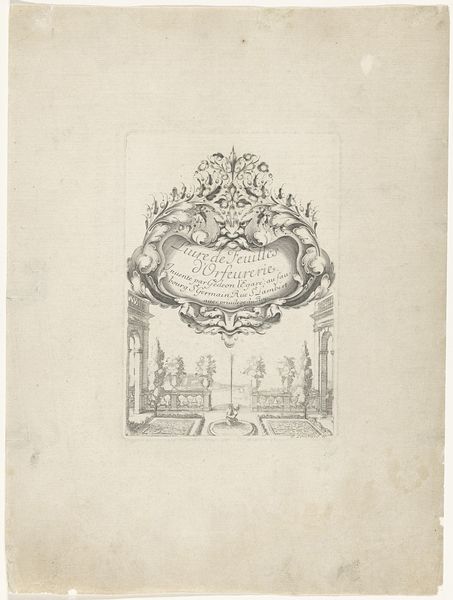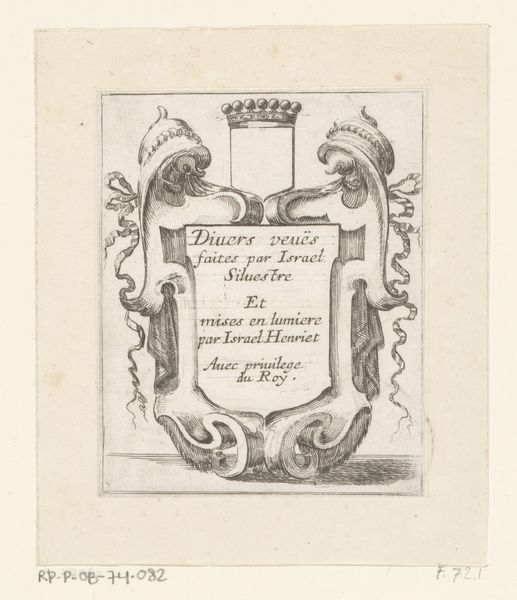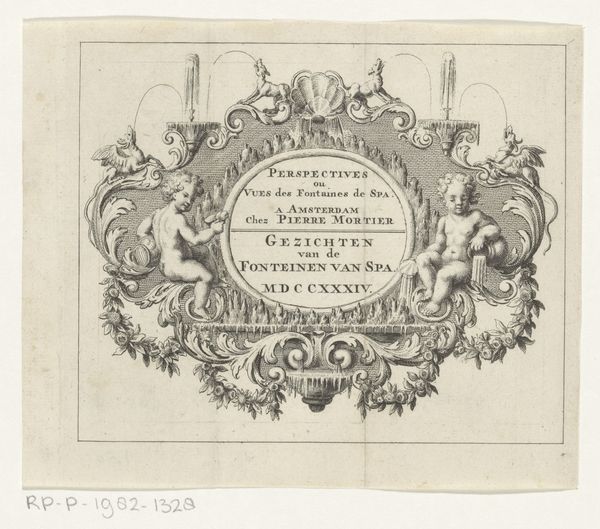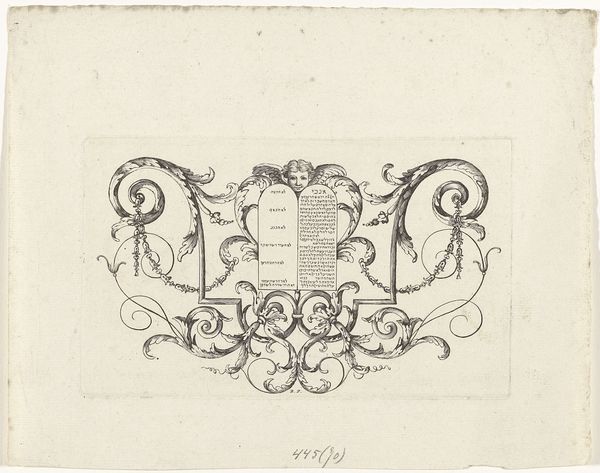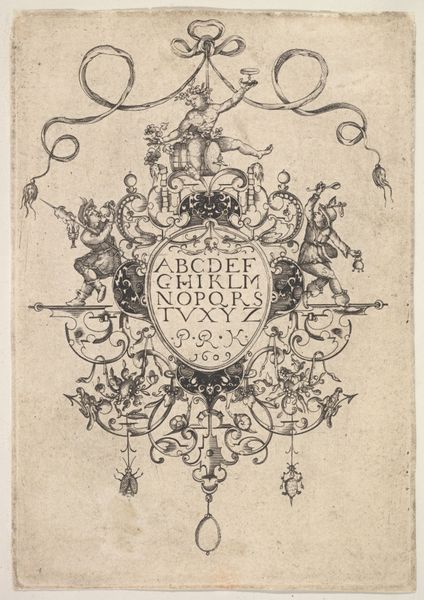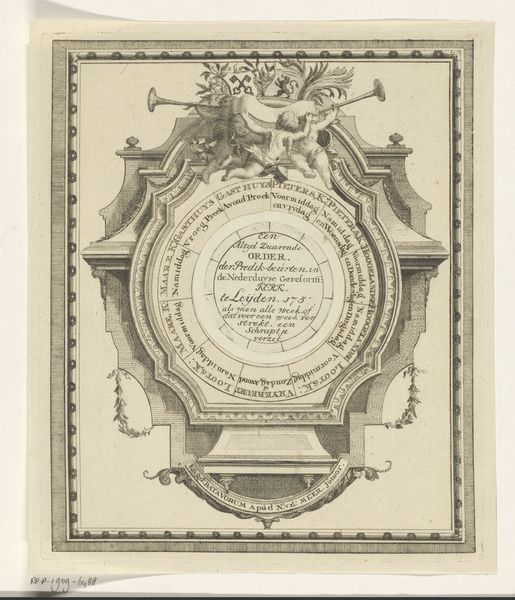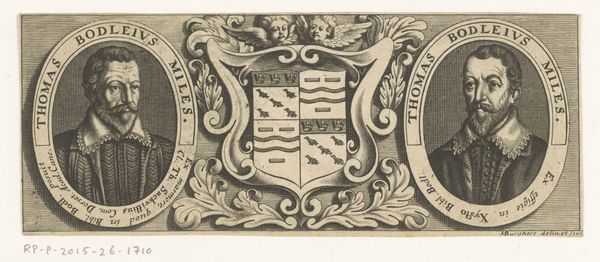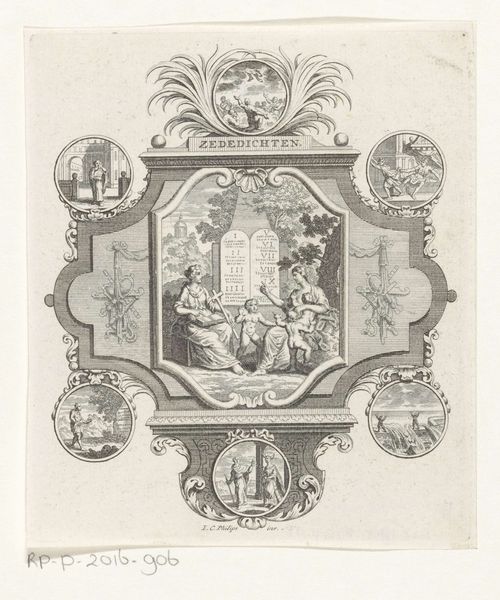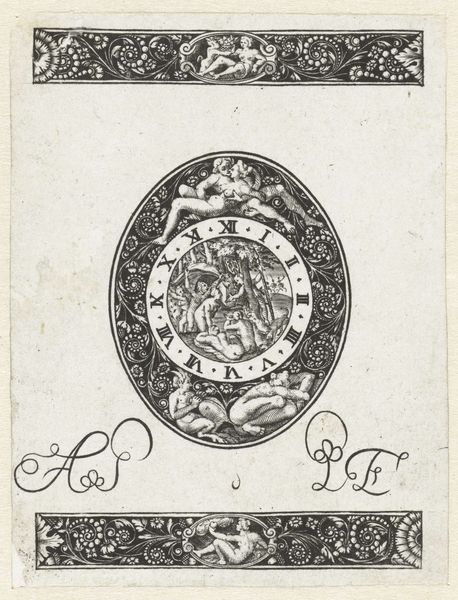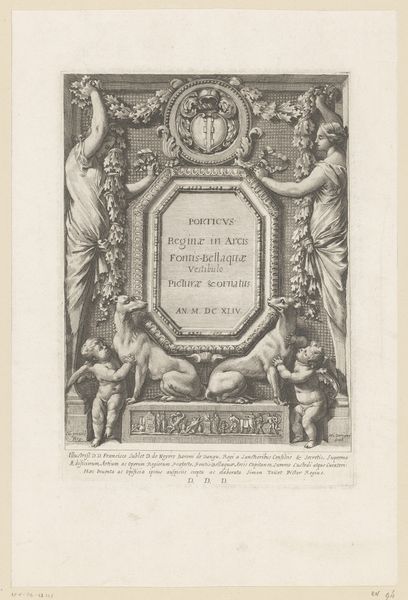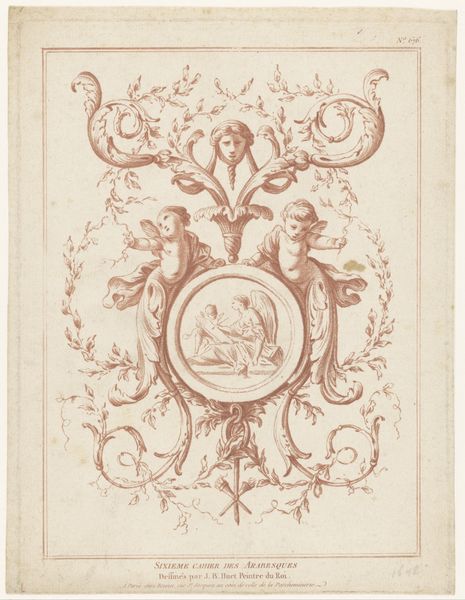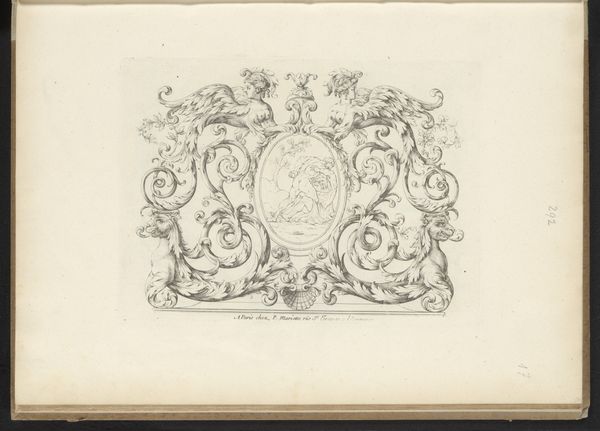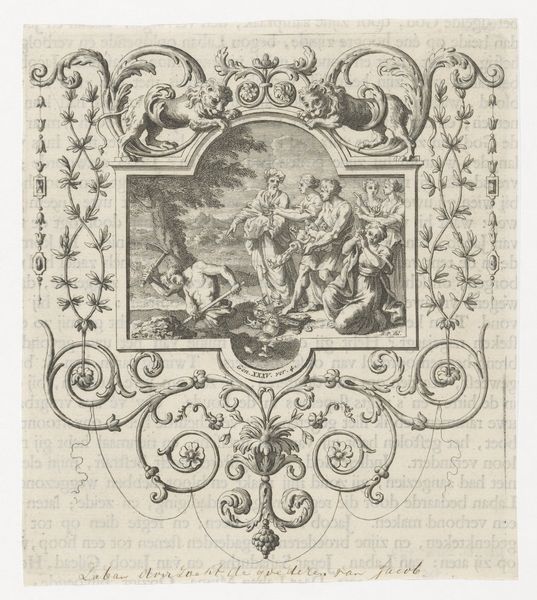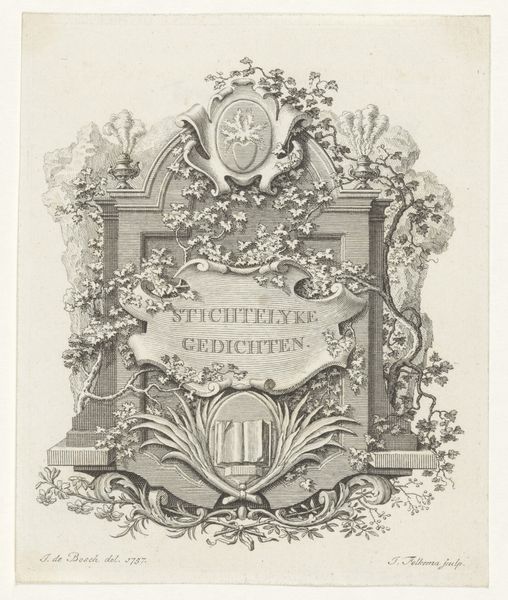
drawing, print, engraving
#
drawing
#
allegory
#
baroque
# print
#
old engraving style
#
engraving
Dimensions: height 124 mm, width 100 mm
Copyright: Rijks Museum: Open Domain
Editor: This is an engraving called "Allegorical Figure and Writing Woman," created in 1717 by François van Bleyswijck. I’m struck by how it uses classical figures to frame the text; it feels like I'm peering into another time. What do you see in this piece? Curator: Absolutely. The artwork uses the Baroque style and allegory in a fascinating way, embedding political messages within symbolic representation. The “writing woman” alludes to female authorship, and thus questions of gender and intellectual authority. Do you think her access to language equates to real power in society? Editor: That's an interesting perspective. I was mostly looking at the angel figure in the middle, seemingly on fire. Curator: Ah, the Cupid! He's strategically positioned. This is typical Baroque period messaging; love, knowledge, and maybe danger were ingredients to effective communication. This was a tumultuous time with censorship. What societal concerns might this reflect? Editor: So, instead of just pretty ornaments, the artwork is actively communicating something. Is that common? Curator: Very much so! Baroque, emerging from the Reformation, embraced a visual vocabulary rich in persuasive rhetoric. Figures of women are prevalent, because this engraving is arguing a space for them, against male authorities. If images were powerful, whose images got amplified and why? Editor: That's eye-opening! I’d thought about its art historical merit only. Thank you for pointing out its sociopolitical side! Curator: It's an invitation to reflect. How did it feel being a woman at the time? That kind of approach brings a whole new level to historical artwork like this one.
Comments
No comments
Be the first to comment and join the conversation on the ultimate creative platform.
